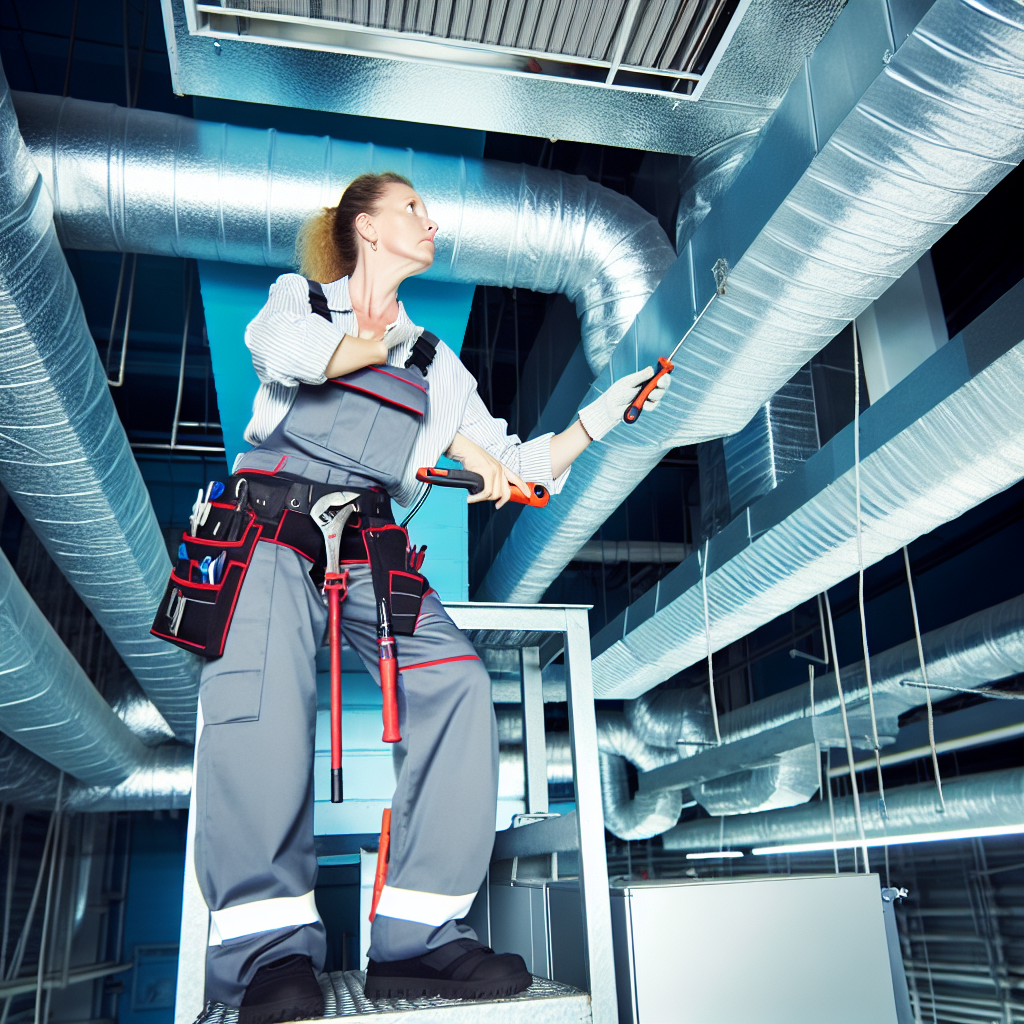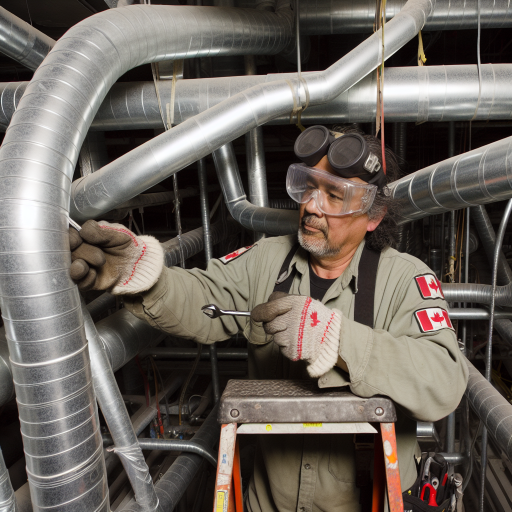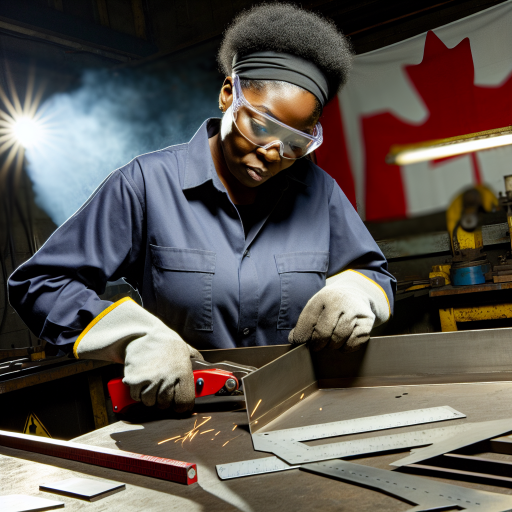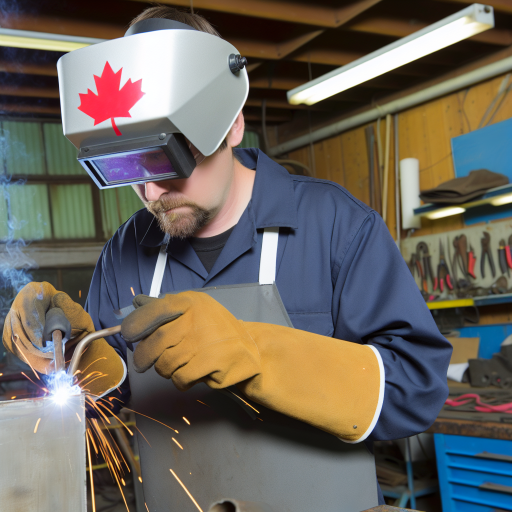Overview of HVAC Systems and Their Importance
What are HVAC Systems?
HVAC systems control heating, ventilation, and air conditioning in buildings.
They ensure indoor comfort regardless of external weather conditions.
Moreover, these systems filter and circulate air, improving air quality.
The Components of HVAC Systems
Various components make up HVAC systems.
Heating units, including furnaces and heat pumps, provide warmth in cold months.
Cooling units, such as air conditioners, bring relief during hot seasons.
Ventilation components ensure proper air flow and circulation.
Additionally, thermostats control the desired temperature settings.
Why HVAC Systems are Essential
HVAC systems are crucial for maintaining comfort in homes and businesses.
They regulate temperature, humidity, and air quality effectively.
Furthermore, proper HVAC systems contribute to energy efficiency.
They help reduce energy costs and environmental impact.
Health and Safety Benefits
Quality HVAC systems promote better indoor air quality.
They prevent the growth of mold and allergens, safeguarding health.
Moreover, consistent ventilation keeps harmful gases and pollutants at bay.
This is vital in both residential and commercial settings.
Regulatory Standards for HVAC Systems
Adhering to local and federal regulations is essential for HVAC installation and maintenance.
Compliance ensures safe operation and energy efficiency.
Consequently, these standards protect both users and technicians alike.
Advancements in HVAC Technology
The HVAC industry continually evolves with new technologies.
Smart HVAC systems enhance energy management and control.
They allow users to monitor and adjust settings remotely.
Additionally, eco-friendly options reduce environmental impact.
Daily Inspection Routines for HVAC Equipment
Overview of Daily Inspections
HVAC technicians start their day by inspecting various equipment.
This process ensures all systems operate efficiently and safely.
Unlock Your Career Potential
Visualize a clear path to success with our tailored Career Consulting service. Personalized insights in just 1-3 days.
Get StartedRegular checks prevent potential malfunctions and costly repairs.
Key Components to Inspect
Technicians focus on vital components during daily inspections.
They examine filters for dust accumulation and cleanliness.
This helps maintain optimal airflow and system efficiency.
Next, they check the refrigerant levels in the system.
Low refrigerant can cause the system to underperform.
They also inspect the ductwork for any leaks or blockages.
Electrical System Evaluation
Technicians assess the electrical components of the HVAC systems.
They check wiring for signs of wear and tear.
Proper connections are crucial for safe operation.
Additionally, they test the functioning of the thermostats.
Ensuring accurate temperature readings is essential.
They observe the functioning of contactors and capacitors as well.
Performance Testing
After inspections, performance testing begins.
Technicians run the system to monitor its operation.
They listen for any unusual noises that might indicate issues.
They also measure temperature differentials across the system.
This data helps technicians identify inefficiencies.
Documentation and Reporting
At the end of each inspection, technicians document their findings.
This report includes details about any issues found.
Clear documentation helps track system performance over time.
Additionally, technicians may recommend necessary repairs or upgrades.
Keeping clients informed builds trust and encourages proactive maintenance.
Troubleshooting Common HVAC Issues
Understanding Common Problems
HVAC systems frequently encounter a range of issues.
Identifying these problems promptly helps in effective troubleshooting.
Some common challenges include insufficient heating or cooling.
Furthermore, unusual noises can indicate mechanical issues.
Another sign of trouble is inconsistent airflow throughout the space.
Steps for Effective Troubleshooting
Start by checking the thermostat settings first.
Ensure the thermostat is working properly before moving forward.
Next, inspect the HVAC filters for dirt and clogs.
Changing a dirty filter can improve airflow significantly.
Additionally, examine the circuit breaker for any tripped switches.
This simple step can resolve many electrical issues.
Inspecting the System Components
Look at the ducts to identify leaks or blockages.
Ensure ductwork is sealed and insulated properly.
Examine the outdoor unit as well for debris or obstructions.
Clearing away debris can enhance system performance.
Additionally, ensure that the refrigerant levels are adequate.
Seeking Professional Assistance
If the issue persists, contacting a professional technician is wise.
Technicians bring expertise and tools for more complex problems.
They can conduct thorough inspections and repairs with precision.
It is also important to have regular maintenance checks.
This proactive approach can prevent many common HVAC issues.
You Might Also Like: What It’s Really Like to Be an Electrician in Canada: Day in the Life
Preventive Maintenance Tasks and Their Benefits
Importance of Preventive Maintenance
Preventive maintenance plays a crucial role in HVAC systems.
It helps prevent unexpected breakdowns and costly repairs.
Regular maintenance also ensures optimal system performance.
Furthermore, it extends the lifespan of the equipment.
Common Preventive Maintenance Tasks
HVAC technicians perform various preventive maintenance tasks.
These tasks include cleaning or replacing air filters.
Checking refrigerant levels is also essential for performance.
Additionally, technicians inspect electrical connections for safety.
Cleaning condenser and evaporator coils enhances efficiency.
Finally, checking and calibrating thermostats ensures accuracy.
Benefits of Regular Maintenance
Regular maintenance offers multiple benefits for homeowners.
It significantly lowers energy costs over time.
Moreover, it improves indoor air quality by reducing allergens.
Effective maintenance increases system reliability.
Additionally, it helps in maintaining warranty coverage.
Ultimately, these benefits lead to higher customer satisfaction.
Best Practices for Homeowners
Homeowners should engage in routine checks of their HVAC systems.
Regularly changing air filters can prevent dust buildup.
Scheduling annual inspections with professionals is crucial.
Keeping the outdoor unit clear of debris ensures proper airflow.
Finally, being attentive to unusual noises or performance issues is essential.
Uncover the Details: Why Skilled Labor Jobs in Canada Are the Backbone of Economic Recovery
Installation Processes for HVAC Systems
Preparation for Installation
HVAC technicians begin their day by gathering necessary tools and equipment.
They assess the installation site for compatibility with the HVAC system.
Moreover, they consult with clients to understand their specific needs.
Selecting the Right System
Choosing the appropriate HVAC system is crucial for efficiency.
Technicians evaluate the square footage and insulation of the premises.
Additionally, they consider the client’s budget and energy efficiency preferences.
System Installation Steps
The first step involves positioning the indoor and outdoor units correctly.
Technicians then connect refrigerant lines and electrical wiring.
They ensure proper insulation and sealing of all connections.
Naturally, they test the system to check for any leaks or issues.
Final Adjustments and Testing
After installation, technicians make necessary adjustments for optimal performance.
They conduct thorough tests to ensure the system runs smoothly.
Furthermore, they explain the system’s features to the clients.
Lastly, they remind clients about routine maintenance for longevity.
See Related Content: The Rise of Electrical Work in Canada: Opportunities and Growth

Customer Interaction and Communication Skills
Importance of First Impressions
HVAC technicians play a crucial role in customer satisfaction.
They establish rapport from the first interaction.
Quickly addressing any concerns fosters trust.
First impressions can lead to repeat business.
Effective Communication Techniques
Clear communication is essential for HVAC technicians.
They must explain technical issues to customers simply.
Using everyday language helps customers understand their systems.
Asking open-ended questions encourages dialogue.
This strategy ensures full comprehension of the customer’s needs.
Active Listening Skills
Active listening is vital in customer interactions.
Technicians should focus entirely on the customer’s words.
This approach shows respect and builds a strong relationship.
Proper acknowledgment of concerns helps technicians diagnose issues accurately.
Managing Customer Expectations
Setting realistic expectations is key to customer satisfaction.
Technicians must clearly communicate service timelines and costs.
They should provide all relevant information upfront.
This transparency minimizes misunderstandings later on.
Handling Difficult Situations
Not all interactions will be positive.
Technicians must stay calm and professional even under pressure.
Active problem-solving can diffuse tense situations.
Empathy plays a critical role in resolving disputes.
Additionally, following up after service shows continued commitment.
Building Long-Term Relationships
Strong customer relationships lead to loyalty.
Technicians should follow up on service visits regularly.
Periodic check-ins demonstrate care for customer well-being.
Such practices enhance the technician’s reputation within the community.
You Might Also Like: Skilled Trades Careers That Are Booming in Canada Now
Safety Protocols and Regulations in HVAC Work
Importance of Safety in HVAC
Safety plays a crucial role in HVAC operations.
HVAC technicians face various hazards daily.
Implementing safety protocols minimizes risks.
Personal Protective Equipment (PPE)
PPE is essential for protecting technicians on the job.
Common PPE includes gloves, goggles, and hard hats.
They reduce exposure to hazardous materials and injuries.
Understanding Regulations
Technicians must adhere to industry regulations.
These regulations ensure the safety of both workers and clients.
Familiarity with local and national codes is critical.
Regular Training and Certification
Continuous training helps technicians stay updated.
Certifications validate their knowledge of safety practices.
Many employers require regular refresher courses.
Emergency Preparedness
Technicians should be prepared for emergencies.
Having a clear emergency plan is vital.
This plan should cover potential hazards in the field.
Monitoring and Evaluation
Regularly assessing safety protocols is necessary.
Techs should report unsafe conditions immediately.
Effectively monitoring safety practices leads to improvement.
Continual Learning and Skill Development in the HVAC Field
The Importance of Ongoing Education
Education remains crucial for HVAC technicians in a rapidly evolving field.
Technology advancements frequently change installation and repair techniques.
Continual learning helps technicians stay updated on new methods and systems.
Many employers provide ongoing training opportunities for their staff.
Certifications enhance a technician’s credentials and demonstrate expertise.
Industry Certifications and Specializations
HVAC technicians can pursue various industry certifications.
Certification programs include NATE, EPA, and HVAC Excellence.
Specializing in specific areas like geothermal or ductless systems is beneficial.
These certifications often require passing rigorous examinations.
Maintaining these certifications often involves continuing education.
Hands-On Experience and Apprenticeships
Hands-on experience is vital in the HVAC field.
Many technicians start their careers through apprenticeships.
Apprenticeships provide real-world training under experienced professionals.
This transition enhances practical skills and knowledge application.
Technology integration also necessitates proficiency with diagnostic tools.
Staying Updated with Industry Trends
HVAC technicians should stay informed about industry trends.
Attending conferences and workshops offers valuable insights and networking.
Subscribing to trade magazines provides information on new equipment and techniques.
Many organizations offer webinars on emerging technologies.
Staying current ultimately improves customer service and satisfaction.
Embracing New Technologies
Embracing technology is essential for modern HVAC technicians.
Smart thermostats and energy-efficient systems are becoming standard.
Technicians need to understand how to install and service these products.
Utilizing smartphone apps for diagnostics can streamline service calls.
Moreover, training on new software systems can increase efficiency.
Additional Resources
Women in the HVAC trade — how is it? : r/HVAC
What term can be used for a plumber, electrician, carpenter, welder …




